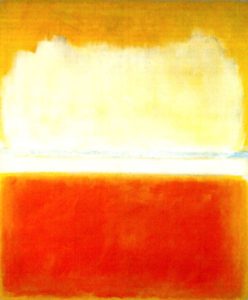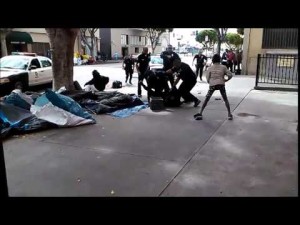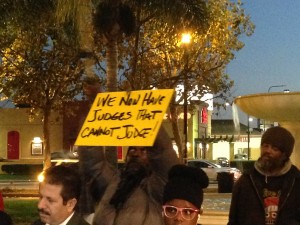In the summer of 1963 the Rev. Dr. Martin Luther King Jr. spoke to a crowd of thousands who had come to Washington DC for the March on Washington for Jobs and Freedom. He articulated the frustrations and anger of the crowds in front of him when he said that they were carrying an overdue promissory note, a note that had been signed by the founding fathers, guaranteeing that all would be granted the inalienable rights to life, liberty, and the pursuit of happiness. King was speaking on the 100th anniversary of Lincoln’s address at the dedication of the Gettysburg cemetery. Lincoln had radically altered the nation’s own myth of origins, saying that “four score and seven years ago our fathers brought forth, upon this continent, a new nation, conceived in liberty, and dedicated to the proposition that ‘all men are created equal.’” Four score and seven years, that is eighty seven years prior to the date of the Gettysburg address in 1863, brings us to 1776, when the United States was declared with the words: “We hold these truths to be self-evident, that all men are created equal.” Lincoln bypassed the Constitution with its odious compromise about slavery, and declared that the origins of this country were rooted in equality. Continue reading
Category Archives: Criminal Justice
Wake up! (On T’shuvah/Repentance & Criminal Justice Reform)
What does it mean to wake up? Maimonides, in his Laws of Repentance (Chapter 3) writes that the function of the shofar is to wake a person up. “Those who forget the truth in the emptiness of the passing time…” should heed the blast of the ram’s horn and stir from their slumber. Nowadays, it is common in activist quarters to speak of people who have recognized certain systemic injustices as being “woke.” Maimonides and the activists are speaking to the same point. There is a crying need to step out of the familiar and often lazy thinking about our own and society’s actions. We are called to take an unvarnished look at our society, and ourselves. Continue reading
On Exodus, the Election, & the Struggles that are Going On Out of the Spotlight

Mark Rothko no-8-1952
From childhood, it seems, we are inculcated with the grand themes of Passover: freedom from slavery! Liberation! Then, in different ways, we translate those themes into usable models for our lives: just as we were liberated, so too must we work for the liberation of others. As Michael Walzer documented in his book Exodus and Revolution, the Exodus story has inspired many groups in many parts of the world to revolution, to radically change their material existence.
Sometimes however, the overwhelmingly large themes overshadow the equally important though smaller moments. Those moments are often the things that actually move the dial, make a difference in the world. There is a wonderful and very short story in the Talmud (Pesachim 115b). The story follows a detailed discussion of the intricate choreography of the seder meal, the liturgical meal that Jews celebrate on Passover eve. Food on trays is brought in and then taken out. Wine is poured and drunk, and then poured again. Foods are dipped. And so on. Continue reading
When the Police need to be Policed (on a Civilian Oversight Commission)
We, as a nation, are in the midst of a full blown crisis. While the carnivalesque debaucheries of the Trump run at the White House have taken much of the air out of the room, exposing a dangerous level of xenophobic hatred and racist violence in segments of the American electorate, there is another crisis which is not getting the attention it deserves.
This crisis is being acted out with the slow motion intensity of a car crash in Chicago, but also in Baltimore, in Texas, in Minneapolis, and here in Los Angeles. Though the details of the crisis change slightly from place to place, the bottom line is the same: as a result of a lack of transparency, a history of abuse, law enforcement agencies have lost credibility, and therefore a lack of legitimacy among the people and communities that they are supposed to be serving. Continue reading
On the way to Sinai (on racism and economic justice)
We are on a journey. This period that we are now moving through, the seven weeks that start on the second day of Passover and end at Shavuot or Weeks, the next holiday in the calendrical cycle, is a journey from Egypt to Sinai. It is deeply symbolic that as the first day of Passover was waning this year, we were marking the 47th anniversary of the assassination of the Rev. Dr. Martin Luther King Jr. This year that anniversary was marked amidst the outcries of the #BlackLivesMatter movement, amidst the sounds of gunshots and the cries of unarmed black and brown men killed by officers of the law, of the state.
 We are on a journey—but where are we going? Continue reading
We are on a journey—but where are we going? Continue reading
When Our Judges Need to Be Judged
 At Leimert Park, the man was holding a sign that said “We now have judges that cannot judge.” Midst chanting “No justice, no peace” and “Hey Ho, racist cops have gotta go” I kept coming back to this plaintive sign. It brought to mind the midrash which comments on the first verse in the Book of Ruth: “In the days when the chieftains ruled.” The Hebrew uses the same root for both noun and verb and has the more poetic: biymay shfot ha-shoftim. When the judges judged, perhaps. The midrash comments: “Woe to the generation which judged its judges, woe to the generation whose judges needed to be judged.” (Ruth Rabba 1:16)
At Leimert Park, the man was holding a sign that said “We now have judges that cannot judge.” Midst chanting “No justice, no peace” and “Hey Ho, racist cops have gotta go” I kept coming back to this plaintive sign. It brought to mind the midrash which comments on the first verse in the Book of Ruth: “In the days when the chieftains ruled.” The Hebrew uses the same root for both noun and verb and has the more poetic: biymay shfot ha-shoftim. When the judges judged, perhaps. The midrash comments: “Woe to the generation which judged its judges, woe to the generation whose judges needed to be judged.” (Ruth Rabba 1:16)
Police officers are part of the judiciary. When asked about the role of police officers in light of Jewish textual tradition, Rabbi Hayyim David Halevy the Chief Rabbi of Tel Aviv (in a small book called Dvar HaMishpat: Hilchot Sanhedrin 1:7) discussed the idea that the police are invested with judicial authority and not merely with punitive or protective authority. Therefore, the Talmud’s demand (Bavli Rosh Hashanah 26a) that a court has two obligations—both judging (deciding law based on the facts and testimony) and saving (attempting as best as they could to find a defendant innocent)—would also apply to police. This translates to the fact that police officers are in a situation wherein they are obligated to defuse, and deescalate a situation rather than to “put down” a threat.
We are now in a time when some of our police officers, and some of the officers of the courts, cannot or will not judge. They will not judge the judges. Woe to our generation for our judges surely need to be judged.
Pursuing Justice (Yes On Proposition 47)
Proposition 47, (which is being called Safe Neighborhoods and Schools), is personal for me. This is not because I will directly and personally benefit from either the reclassification of some felonies as misdemeanors, nor will I gain from the redirection of monies saved to schools and rehabilitation projects. Proposition 47 is personal because California’s judicial system in which I and all Californians are implicated is broken. In our name and by our (in)action the penal system is perpetrating injustices on a daily basis. Continue reading
